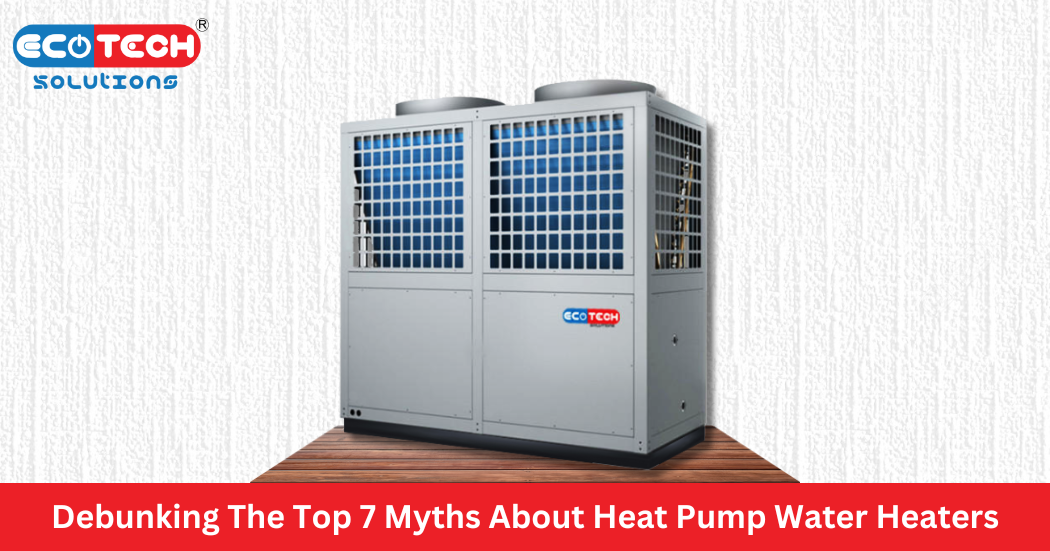In the world of energy-efficient heating solutions, heat pump water heaters have gained significant attention for their eco-friendly operation and cost-saving benefits. However, despite their growing popularity, there are several misconceptions surrounding heat pump water heaters that often lead to confusion among consumers. In this comprehensive guide, we will debunk the top seven myths about heat pump water heaters, providing you with accurate information to make informed decisions about your home’s heating system.
Myth 1: Heat Pump Water Heaters Are Inefficient in Cold Climates
One of the most common myths about heat pump water heaters is that they are ineffective in colder climates. While it’s true that heat pumps rely on extracting heat from the surrounding air, modern advancements in technology have made them suitable for use in a wide range of temperatures. In fact, many heat pump water heaters come equipped with features like backup electric heating elements to ensure consistent hot water supply even in cold weather conditions. Additionally, proper installation and insulation can further optimize their performance, making them efficient even in chilly environments.
Myth 2: Heat Pump Water Heaters Take Too Long to Heat Water
Another misconception about heat pump water heaters is that they take longer to heat water compared to traditional electric or gas-powered models. While it’s true that heat pump water heaters may have a slightly longer recovery time, the overall efficiency and energy savings they offer outweigh this minor inconvenience. Additionally, many modern heat pump water heaters come with advanced features like rapid heating modes and smart scheduling options, allowing you to customize your hot water supply according to your needs.
Myth 3: Heat Pump Water Heaters Are Noisy
Some homeowners are hesitant to invest in heat pump water heaters due to concerns about noise levels. However, the reality is that modern heat pump water heaters are designed to operate quietly, making them suitable for installation in residential settings. Manufacturers have implemented sound-dampening technologies and vibration-reducing components to minimize noise during operation. Additionally, proper installation by trained professionals can further mitigate any potential noise issues, ensuring a quiet and comfortable home environment.
Myth 4: Heat Pump Water Heaters Require Extensive Maintenance
Contrary to popular belief, heat pump water heaters require minimal maintenance compared to traditional heating systems. While it’s recommended to perform regular checks and inspections to ensure optimal performance, the maintenance tasks for heat pump water heaters are relatively straightforward. These may include cleaning or replacing air filters, inspecting the heat exchanger, and checking for any leaks or malfunctions. With proper care and occasional servicing by qualified technicians, heat pump water heaters can provide years of reliable operation without the need for extensive maintenance.
Myth 5: Heat Pump Water Heaters Are Expensive to Install
Another myth surrounding heat pump water heaters is that they are prohibitively expensive to install. While the upfront cost of purchasing and installing a heat pump water heater may be higher than that of traditional models, the long-term savings in energy costs can offset this initial investment. Additionally, many utility companies offer rebates and incentives for installing energy-efficient appliances like heat pump water heaters, further reducing the overall cost. When considering the lifetime energy savings and potential incentives, investing in a heat pump water heater can be a cost-effective decision in the long run.
Myth 6: Heat Pump Water Heaters Are Prone to Freezing
Concerns about freezing are often raised regarding heat pump water heaters, especially in colder climates. However, modern heat pump water heaters are equipped with built-in freeze protection features to prevent damage from freezing temperatures. These may include automatic defrost cycles, insulated water tanks, and anti-freeze solutions. Additionally, proper installation and placement of the unit, such as in a conditioned space or with adequate insulation, can further reduce the risk of freezing. By following manufacturer guidelines and taking necessary precautions, homeowners can ensure reliable operation of their heat pump water heaters even in freezing conditions.
Myth 7: Heat Pump Water Heaters Have Limited Lifespan
Finally, there is a misconception that heat pump water heaters have a shorter lifespan compared to traditional models. In reality, with proper maintenance and care, heat pump water heaters can last just as long, if not longer, than conventional water heaters. Many manufacturers offer warranties ranging from 5 to 10 years or more, providing added peace of mind for homeowners. By following recommended maintenance schedules and addressing any issues promptly, you can maximize the lifespan of your heat pump water heater and enjoy efficient hot water supply for years to come.
Heat pump water heaters offer a sustainable and cost-effective solution for residential hot water heating. By debunking the top myths surrounding these innovative appliances, we hope to provide you with the accurate information needed to make informed decisions about your home’s heating system. Whether you’re looking to reduce energy consumption, lower utility bills, or minimize environmental impact, a heat pump water heater could be the perfect solution for your household needs.


